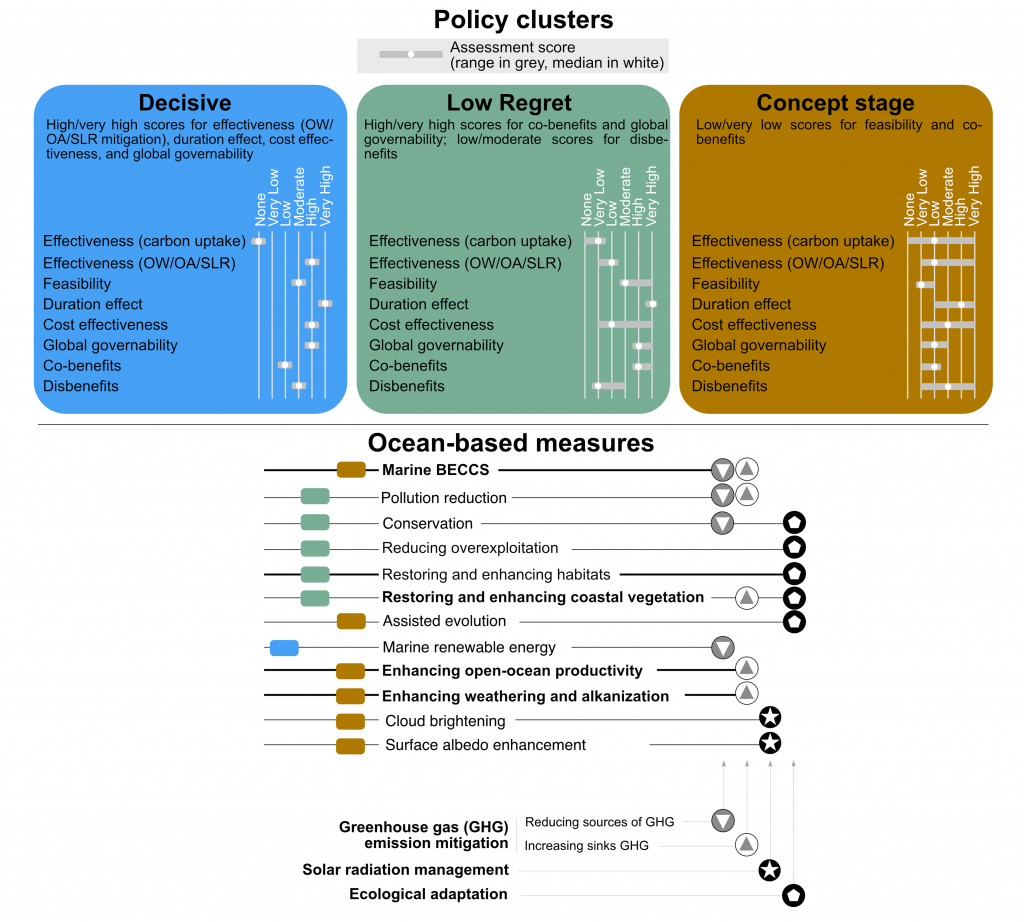Authors: Jean-Pierre Gattuso, Phillip Williamson, Carlos Duarte and Alexandre Magnan
Implementing the Paris Agreement is a formidable challenge. It requires far-reaching and unprecedented transitions in all sectors, and also large-scale use of negative emissions technologies (NETs), that is removal of greenhouse gases from the atmosphere by deliberate human activities. Beside mitigation, the ocean is also source of ecological adaptation measures but ocean-based climate actions have received relatively minor attention in climate negotiations. Ahead of COP26 this year, it is timely to assess the opportunities offered by the ocean to reduce the causes and also the consequences of climate change, globally and locally.
In a new paper, the authors have clustered ocean-based measures in three policy-relevant categories (Decisive, Low Regret, Concept Stage). None of the ocean-based NETs assessed are identified as Decisive at this stage. One is Low Regret (Restoring and increasing coastal vegetation), and three are at Concept Stage, one with low to moderate potential disbenefits (Marine bioenergy with carbon capture and storage) and two with potentially high disbenefits (Enhancing open-ocean productivity and Enhancing weathering and alkalinization). Ocean-based NETs are uncertain but potentially highly effective. They have high priority for research and development.
